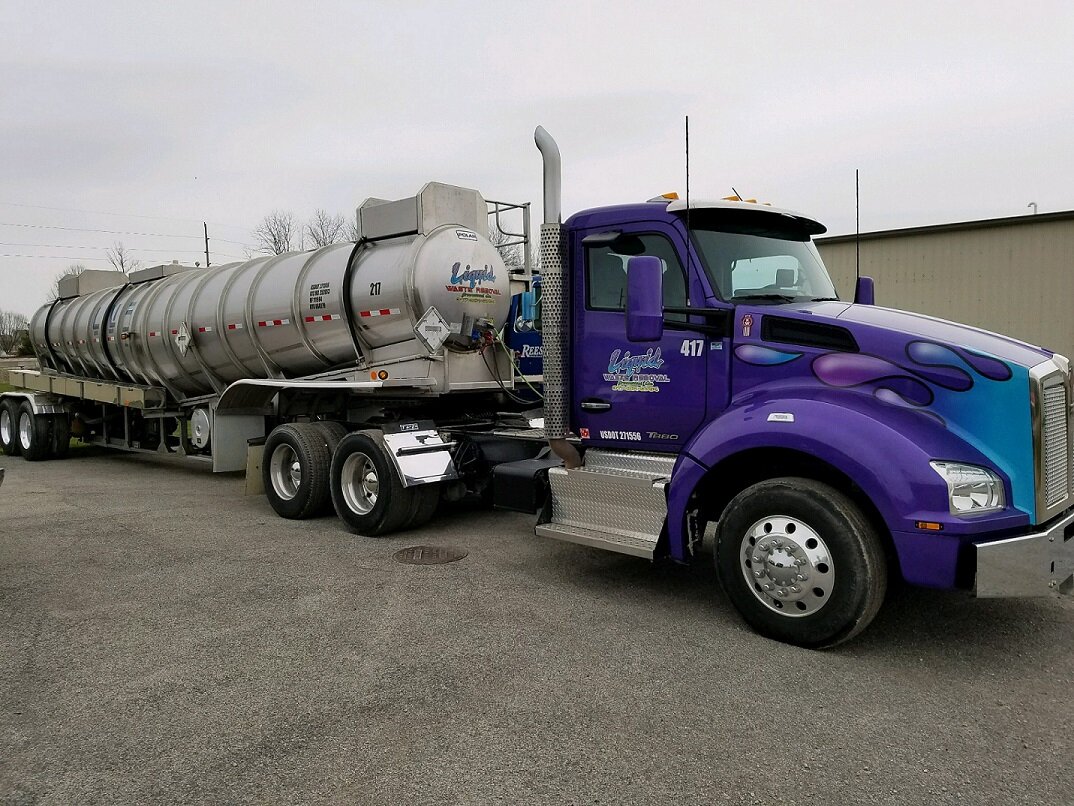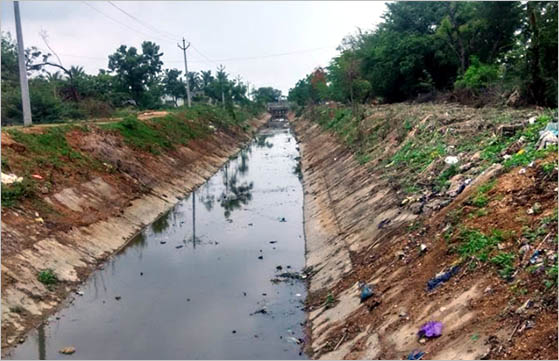Expert Liquid Waste Removal Melbourne: Keeping Your Environment Clean
Expert Liquid Waste Removal Melbourne: Keeping Your Environment Clean
Blog Article
Comprehending the Comprehensive Process of Fluid Waste Disposal: Best Practices and Environmental Impact Considerations
The monitoring of fluid waste disposal is a diverse issue that requires a detailed understanding of different best methods and their connected environmental impacts. From the kinds of liquid waste generated to the approaches employed for collection, treatment, and final disposal, each action plays a vital duty in safeguarding ecological communities and public health. As regulatory requirements advance and innovation advancements, the discussion around these processes comes to be significantly important. What implications do these adjustments hold for future sustainability efforts, and exactly how can stakeholders make sure that they are sufficiently dealt with?
Kinds of Liquid Waste
Understanding the different sorts of liquid waste is necessary for efficient monitoring and disposal methods. Liquid waste can be generally categorized into several kinds, each calling for special handling and treatment techniques.
Industrial liquid waste frequently consists of harmful products, including heavy steels, solvents, and chemicals, created during producing processes. These wastes require strict governing conformity to shield human wellness and the setting. Domestic liquid waste primarily refers to wastewater generated from homes, including sewage and greywater, which, although less hazardous, can still pose substantial risks if improperly taken care of.
Agricultural fluid waste, including overflow from farms, commonly has plant foods and pesticides that can cause environmental deterioration otherwise treated adequately. Clinical liquid waste, created from medical care facilities, includes polluted fluids such as physical fluids and chemicals, calling for specialized disposal techniques to avoid infection and environmental contamination.
Finally, oil and oil waste, usually created by restaurants and vehicle sectors, can cause extreme obstructions in sewer systems if not taken care of correctly. Comprehending these classifications helps with targeted techniques for treatment, compliance with guidelines, and reliable disposal methods, inevitably advertising ecological sustainability and public wellness safety and security.

Collection Techniques
Effective collection methods are important for the appropriate monitoring of liquid waste, making sure that it is collected securely and successfully before treatment or disposal. Numerous strategies are employed relying on the type of fluid waste generated, the volume, and the details attributes of the waste.
One typical technique is making use of committed collection storage tanks or sumps, which are designed to catch fluid waste at the resource. These systems frequently incorporate pumps that assist in the transfer of waste to bigger storage space containers or therapy centers. In addition, mobile collection devices furnished with vacuum innovation are utilized in scenarios where waste is generated intermittently or in hard-to-reach locations.
For commercial setups, closed-loop systems can properly minimize spills and leakages, permitting the healing and reuse of liquid waste. It is likewise vital to educate personnel on correct collection methods to alleviate risks related to harmful compounds.
In addition, implementing regular upkeep schedules for collection tools makes sure optimal performance and safety and security. The integration of innovative monitoring systems can boost collection performance by providing real-time information on waste levels and potential dangers. On the whole, efficient collection methods are fundamental to lasting fluid waste management methods.
Treatment Procedures
Therapy procedures play an important role in the management of fluid waste, changing possibly hazardous materials right into risk-free effluents or multiple-use sources - liquid waste disposal. These procedures can be generally categorized into physical, chemical, and biological techniques, each tailored to resolve details impurities present in the waste stream
Physical treatment techniques, such as sedimentation and purification, job by getting rid of put on hold solids and particulate matter. These methods are commonly the initial step in the therapy chain, properly decreasing the lots on succeeding procedures. Chemical treatments involve making use of reagents to reduce the effects of unsafe materials, speed up hefty steels, or oxidize natural toxins, consequently boosting the safety of the effluent.
Organic treatment processes, consisting of triggered sludge systems and anaerobic food digestion, utilize on the natural abilities of microorganisms to deteriorate raw material. These approaches are specifically efficient for wastewater having eco-friendly contaminants. Advanced treatment technologies, such as membrane filtering and advanced oxidation procedures, are increasingly used to achieve higher levels of purification.
Incorporating a combination of these therapy techniques not just makes sure compliance with governing standards however likewise promotes ecological sustainability by recovering important sources from liquid waste.
Disposal Options
How can organizations make certain the secure and responsible disposal of liquid waste? Efficient disposal alternatives are vital for guarding public health and wellness and the atmosphere. The primary techniques include land disposal, treatment, and incineration adhered to by discharge into local wastewater systems.
Land disposal includes the careful control of fluid waste in marked garbage dumps, guaranteeing that it does not seep right into surrounding soil or water. Incineration, on the other hand, topics liquid waste to high temperature levels, transforming it right into ash and gases, which call for proper purification to lessen emissions. This method appropriates for contaminateds materials that can not be dealt with with standard means.
In instances where fluid waste can be treated, companies may go with biological or chemical treatment processes to neutralize harmful elements before releasing the treated effluent right into community systems. This course normally lines up with governing requirements, making certain that the effluent satisfies safety criteria.
Eventually, organizations must conduct complete analyses of each disposal alternative to determine its practicality, considering factors such as waste structure, regulatory conformity, and potential dangers to health and the environment. By selecting appropriate disposal methods, businesses can contribute to an accountable waste monitoring strategy.
Ecological Effect
The ecological influence of fluid waste Find Out More disposal is a vital consideration for organizations seeking to lessen their ecological impact. Improper disposal techniques can cause substantial contamination of water resources, dirt deterioration, and damaging impacts on regional environments. As an example, unsafe fluids can seep right into groundwater, presenting risks to drinking water supplies and marine see this page life. Furthermore, the discharge of neglected or inadequately treated waste into surface area waters can cause eutrophication, causing oxygen deficiency and the succeeding fatality of fish and various other microorganisms.

To minimize these influences, organizations need to take on best practices such as carrying out rigorous waste therapy processes, promoting recycling and reuse, and sticking to governing requirements. By taking an aggressive approach to liquid waste monitoring, entities can substantially decrease their ecological impact while sustaining sustainable development objectives. Ultimately, a comprehensive understanding of the environmental influences connected with liquid waste disposal is crucial for informed decision-making and liable stewardship of natural deposits.
Verdict
Efficient monitoring of liquid waste is essential for protecting environmental integrity and public wellness. Ultimately, a detailed understanding of fluid waste disposal not just reduces environmental influences but additionally promotes a dedication to responsible source management and ecological stewardship.
The click for more info monitoring of fluid waste disposal is a diverse problem that calls for a detailed understanding of numerous finest techniques and their associated ecological effects. From the kinds of liquid waste produced to the techniques utilized for collection, treatment, and final disposal, each step plays a crucial function in securing environments and public health and wellness.The ecological influence of fluid waste disposal is a critical consideration for organizations seeking to minimize their ecological footprint. Ultimately, an extensive understanding of the environmental influences linked with liquid waste disposal is essential for informed decision-making and liable stewardship of all-natural resources.
Eventually, a thorough understanding of fluid waste disposal not just mitigates ecological impacts however additionally fosters a dedication to accountable source monitoring and ecological stewardship.
Report this page